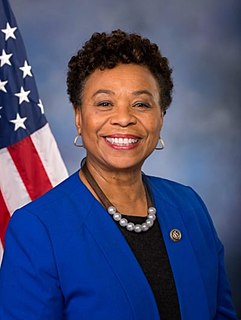A Quote by Paul Krugman
I believe in a relatively equal society, supported by institutions that limit extremes of wealth and poverty. I believe in democracy, civil liberties, and the rule of law. That makes me a liberal, and I’m proud of it.
Related Quotes
I think if you're a liberal, you believe that we all are, at least to some extent, our brothers' keepers, you really believe that we have a sumptuary responsibility to make sure that life is decent for everybody in America, that you believe that society out to be broadly shared, and you believe that you can't have a real democracy unless you have a little bit, at least, of economic democracy.
I call government that works the best for people open society, which is basically just another more general term for a democracy that is - you call it maybe a liberal democracy. It's not only majority rule but also respect for minorities and minority opinions and the rule of law. So it's really a sort of institutional democracy.
Democracy only has substance if there's the rule of law. That is, if people believe that the votes are going to be counted, and they are counted. If they believe that there's a judiciary out there that will make sense of things if there's some challenge. If there isn't rule of law, people will be afraid to vote the way they want to vote.
If by a "Liberal," they mean someone who looks ahead and not behind, someone who welcomes new ideas without rigid reactions, someone who cares about the welfare of the people - their health, their housing, their schools, their jobs, their civil rights, and their civil liberties - someone who believes that we can break through the stalemate and suspicions that grip us in our policies abroad, if that is what they mean by a "Liberal," then I'm proud to say that I'm a "Liberal."
There are those who argue that the concept of human rights is not applicable to all cultures. We in the National League for Democracy believe that human rights are of universal relevance. But even those who do not believe in human rights must certainly agree that the rule of law is most important. Without the rule of law there can be no peace.
I think that there’s going to be a rush to judgment on civil liberties, and a clamping down, a suspension of our democratic rights. And I believe that those who are good Americans would want to see this not happen and that we debate how to find a balance between the public safety and the protection of civil liberties.
Let us look at wealth and poverty. The affluent society and the deprived society inter-are. The wealth of one society is made of the poverty of the other. "This is like this, because that is like that." Wealth is made of non-wealth elements, and poverty is made by non-poverty elements. [...] so we must be careful not to imprison ourselves in concepts. The truth is that everything contains everything else. We cannot just be, we can only inter-be. We are responsible fo everything that happens around us.




































